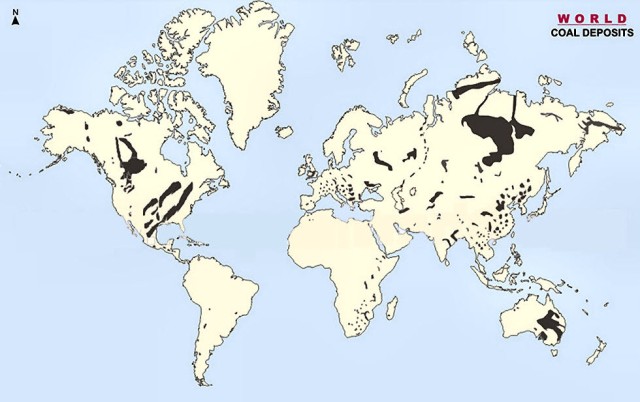Band in China
Banned
POD- say something simple, common, and vital like the English monarchy/aristocracy entrenching their authority and creating a political and economic climate unsuitable for industrialization occurs in England, where else has the potential for industrialization?
I'll be upfront, I'm not as well-versed on Early Modern Chinese nor Indian economics to do much more than broad strokes for them. If anyone more knowledgeable can opine then I thank them.
So I want to work from identifying geographical conditions ideal for industrialization to a POD that creates the political and economic environment for it. What do I mean by this?
1. Take for example Eastern Ukraine, prime agricultural land, decent river transport/power from the Don and Donets, easy access to the Mediterranean market via the Black Sea, lots of coal and iron deposits near rivers all ideal for industrialization.
But if we consider the politics of it then its the frontier lands and constantly fought over between Muslims, Christians, and nomads with plenty of destruction and chaos-which is rather boring as it knocks off entire regions and can be fixed with a POD 300 years earlier. Not to say that politics doesn't matter, just that it adds to the need for divergence.
PODs: Tokhtamysh doesn't feud with his ally Timur, the Golden Horde is not crushed by Timur, its settlements are not sacked and replaced with nomadic slave raiders, Golden Horde remains a relatively stable regional power over time, the Horde continues its slow and comfortable slide into a sedentary lifestyle. By 1700 the population had been booming for over two centuries on the fruits of the rich soils under the protection of the Khans, the empire has been expanding East into the poorly populated steppes and taiga with gunpowder and trade, the West is stable with a collection of divided Orthodox principalities, while fruitful exchanges continue with the Sultanate of "the city" in the South.
A simple rule of thumb would be the importance of coal and iron ore, iron for tools, coal for energy.


source: https://grandemotte.wordpress.com/wp-content/uploads/2013/03/global-coal-fields.jpg?w=640
2. Balkans: Kosovo seems to the exception here, having ample supplies of coal, iron, and other metals right beside each other. The main issue is transport: the rivers in the region are tiny and rough, requiring a dramatic amount of work for any type of canal and it seems difficult to jump start any industrialization with handcarts or personal boats.
3. Lower-Countries: quite easy, good river and sea access, center of an economic region, local peat and coal, close access to iron ore, decent wind power.
4. Reserved for Germany
5. Reserved for Baltic Sea
6. Reserved for Eastern America
I'll be upfront, I'm not as well-versed on Early Modern Chinese nor Indian economics to do much more than broad strokes for them. If anyone more knowledgeable can opine then I thank them.
So I want to work from identifying geographical conditions ideal for industrialization to a POD that creates the political and economic environment for it. What do I mean by this?
1. Take for example Eastern Ukraine, prime agricultural land, decent river transport/power from the Don and Donets, easy access to the Mediterranean market via the Black Sea, lots of coal and iron deposits near rivers all ideal for industrialization.
But if we consider the politics of it then its the frontier lands and constantly fought over between Muslims, Christians, and nomads with plenty of destruction and chaos-which is rather boring as it knocks off entire regions and can be fixed with a POD 300 years earlier. Not to say that politics doesn't matter, just that it adds to the need for divergence.
PODs: Tokhtamysh doesn't feud with his ally Timur, the Golden Horde is not crushed by Timur, its settlements are not sacked and replaced with nomadic slave raiders, Golden Horde remains a relatively stable regional power over time, the Horde continues its slow and comfortable slide into a sedentary lifestyle. By 1700 the population had been booming for over two centuries on the fruits of the rich soils under the protection of the Khans, the empire has been expanding East into the poorly populated steppes and taiga with gunpowder and trade, the West is stable with a collection of divided Orthodox principalities, while fruitful exchanges continue with the Sultanate of "the city" in the South.
A simple rule of thumb would be the importance of coal and iron ore, iron for tools, coal for energy.

source: https://grandemotte.wordpress.com/wp-content/uploads/2013/03/global-coal-fields.jpg?w=640
2. Balkans: Kosovo seems to the exception here, having ample supplies of coal, iron, and other metals right beside each other. The main issue is transport: the rivers in the region are tiny and rough, requiring a dramatic amount of work for any type of canal and it seems difficult to jump start any industrialization with handcarts or personal boats.
3. Lower-Countries: quite easy, good river and sea access, center of an economic region, local peat and coal, close access to iron ore, decent wind power.
4. Reserved for Germany
5. Reserved for Baltic Sea
6. Reserved for Eastern America
Last edited: